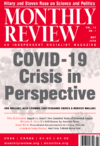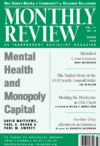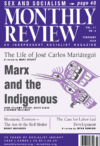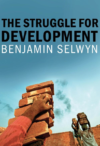
Culling the herd
A new poem from Marge Piercy. | more…

A new poem from Marge Piercy. | more…

In its wider economic, ecological, epidemiological, and public health context, the current COVID-19 pandemic demonstrates the enormous dangers of the metabolic rift in human ecology and epidemiology brought on by capitalist social relations in the age of monopoly-finance capital, global agribusiness, and intricate, globe-spanning supply chains associated with the extreme exploitation and expropriation of both human beings and nature. Neoliberalism, representing the inner logic of capitalism, has left the world vulnerable to catastrophe wherever it has come into play. | more…

COVID-19, the illness caused by coronavirus SARS-CoV-2, the second severe acute respiratory syndrome virus since 2002, is now officially a pandemic. As of late March, whole cities are sheltered in place and, one by one, hospitals are lighting up in medical gridlock brought about by surges in patients. | more…

As the long history, right to the present day, of police and vigilante violence against black people has shown with great clarity, the racial chasm between black and white people in the United States lives on. A few black men and women have climbed into the 1 percent, and a sizable African-American middle class now exists. But by every measure of social well-being, black Americans fare much worse than their white counterparts. Just as for the economic, political, and social distance between capitalists and workers, so too is there a differential between black and white people, for these same interconnected components of daily life continue because of the way our system is structured. | more…

A new poem by Linda Backiel. | more…

Health Care Under the Knife, a collection of essays under the editorship of Howard Waitzkin, presents a vigorous critique of health within the context of capitalism, examining the extent to which the economy and its relations of production determine how health is socially distributed, the conditions of medical practice, and the structural organization of health systems. Rather than considering health as primarily a biomedical phenomenon and health systems as autonomous institutions, the volume recognizes the intricate fundamental relationship between health and the wider political, economic, and sociological context. | more…

According to the U.S. Bureau of Labor Statistics, the U.S. economy is experiencing an unemployment rate that is at a fifty-year low. Yet, wage growth continues to be weak, with continuing wage stagnation even at the peak of the business cycle. A major and largely undertheorized reason for the sluggish wages in a period of seeming full employment is to be found in the fact that the new jobs being created by the economy do not measure up to those of the past in terms of weekly wages and hours, or in the degree to which they support households or even individuals. | more…

As an exposition of capitalism’s contradictions, Paul Baran and Paul Sweezy’s Monopoly Capital remains one of the most influential treatises in Marxist political economy produced in North America. Among Baran and Sweezy’s sociological investigations, they identified the negative consequences of capitalism for mental health, drawing attention to the manner in which the organization of capitalist society conflicted with the essential needs of the individual. | more…

When Paul Baran and Paul Sweezy’s Monopoly Capital was published by Monthly Review Press in 1966, two of the chapters originally drafted for the book were left out of the final volume: what was to have been Chapter 9 in the original plan for the book, entitled “Some Theoretical Implications,” and what was intended as Chapter 11, “The Quality of Monopoly Capitalist Society: Culture and Mental Health.” In July–August 2012, “Some Theoretical Implications” was finally published in Monthly Review. This was followed by the publication of the first part, approximately two-thirds of the whole, of “The Quality of Monopoly Capitalist Society: Culture and Mental Health,” titled “The Quality of Monopoly Capitalist Society: Culture and Communications,” in the July–August 2013 issue of the magazine. The section on mental health was left out on the grounds that it was incomplete. We finally publish it here. | more…

According to the U.S. Bureau of Labor Statistics, the U.S. economy is experiencing an unemployment rate that is at a fifty-year low. Yet, wage growth continues to be weak, with continuing wage stagnation even at the peak of the business cycle. A major and largely undertheorized reason for the sluggish wages in a period of seeming full employment is to be found in the fact that the new jobs being created by the economy do not measure up to those of the past in terms of weekly wages and hours, or in the degree to which they support households or even individuals. | more…

While later generations of Marxian scientific socialists saw sex as secondary, derivative of the real relationships of production, many of the earliest socialist theorists and movements took sexual matters very seriously. Thus, in many ways, the advent of Marxian socialism represented something of a step backward in the development of a radical sexual politics. However, in the twentieth century, old divisions on the sex question within the left soon reappeared. | more…

As Benjamin Selwyn points out in his sharp and thoughtful The Struggle for Development, capital-centered development deepens exploitation. Selwyn powerfully challenges the capitalist road to further immiseration for the majority of the world’s population, opening up an important discussion regarding what is to be done in the twenty-first century. An alternative form of development, led by the laboring classes, is not only necessary but possible. Above all, “labouring-class movements and struggles against capitalist exploitation can be, and are, developmental in and of themselves.” | more…
Notifications